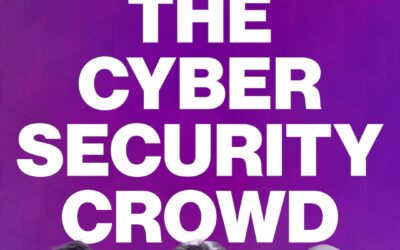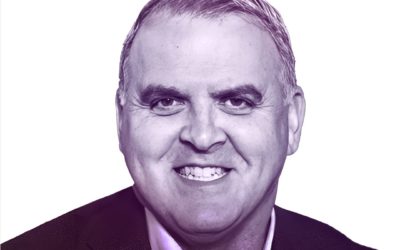Anthony sits down with Gene Dunn, Director of Support and Professional Services out of Integris’ Atlanta office, for a chat about Gene’s career, a typical day in his life, and where he sees technology going.
Check out the transcript below and listen along with the embed, Spotify, Apple Podcasts, or your favorite podcast app.
Transcript
Introduction
Anthony DeGraw: Welcome to another episode of The Helpdesk podcast, hosted by Integris. I am Anthony DeGraw. I’m the VP of Sales over at Integris. And today I have the pleasure of welcoming Gene Dunn. He is the Director of Support and Professional Services out of our Atlanta office. Gene, welcome to The Helpdesk.
Gene Dunn: Thank you, sir. Good to be here.
Anthony DeGraw: Awesome. So we’ll get right into it. We’re going to do an interview style podcast to really get to know Gene on a more deeper basis. So we’ll go right there. Gene, how did you get started in the MSP business?
Getting started in the MSP business
Gene Dunn: I started in IT in 1984 working for a go-between company between Eastman, Kodak, and IBM. Kodak would place orders, literally sometimes it was a thousand systems a week and we would configure them, test them, label on whatever we had to do and ship them out. And that was the first four or five months I was there, that was actually the pre hard drive era.
So when I left there, I went to a new budding company called RG Engineering, that was actually an MSP without knowing they were an MSP, we were a couple floors of engineers that were configuring and going on-site and doing work. So it wasn’t like, necessarily a managed services provider, but they were one of the very first on-site engineer type of services I ever even heard of. Then from there a variety of different opportunities and positions.
Anthony DeGraw: How did you find legacy Providyn. How did that come into play?
Gene Dunn: A dear friend of mine was a director here. I’m actually sitting in his chair, and he put in his notice.
And three or four people immediately when they got that word, went to Hamish and said, go get this guy. So I was honored to have that kind of support before I even came in the door. These were all people that I work with at a previous MSP.
Standard day as a Director of Support & Professional Services
Anthony DeGraw: Okay. Appreciate that. And Let’s talk a little bit about your role of Director Support and Professional Services out of Atlanta. Walk us through, like what does a standard day look like?
Gene Dunn: Meetings, and more meetings? I probably average anywhere between 25 to 35 meetings a week. It seems to be five or six a day. I’m a big fan of meetings if they’re constructive and productive, so they have to serve a purpose.
Daily. I get a portion of check-in approvals just to stay on top of things. See what’s going on. I look at all the C-SAT scores beginning of the week. I have to put all the scores into the boards for meetings that we have set that up.
Just looking at a lot of action, a lot of intercommunication with different teams, right? The strategic teams, a lot of work with the project teams and of course the support services and then, whatever kind of administrative tasks. So
Anthony DeGraw: What gets your juices going, in the day-to-day? What really gets you going? You’re like, “I love this aspect of my job?”
Gene Dunn: The people I work with. We’ve been working very hard for the last year, getting quality individuals employed here. Real serious team players, solid work ethic, high level contributors.
The technical skillset is relevant. You don’t have to be an excellent technician. You have to be a good technician. You have to be an analytical individual. And if we have that, most of those people really hit the ground running and then just sponge heads, they learn fast.
But that’s really what gets me going when I see growth, when I see people taking advantages of opportunities that have been placed in front of them. Regardless of how wretched of a situation it may be, but coming out, smelling like a rose or doing an excellent job, getting a client kudos for that, that does my heart good. I love to see that.
Tech trends over the last 15 years
Anthony DeGraw: So, what major trends have you noticed over the last 15 years around cloud, cybersecurity, working from home, I’ll let you take that in any direction you want to. But obviously you’ve seen a lot, what are the differences?
Gene Dunn: All of those (Laughs) Everything. So I try and lay that perspective on the table with this little story. I’ve shared it before. If an executive wanted to send a letter to the 2,500 people in his company, 25 years ago, 30 years ago. He’d have to have 58 secretaries working for a week, typing, signing, mailing the whole bit.
Now, he does this… send.
It’s the difference between a Model T and a Lamborghini. It truly is. Everything is connected to the network. For crying out loud, your watch, your refrigerator, your lights at home, the furnace. Everything is connected to the technology. So we’ve gone from PCs and how powerful they can be.
And the software finally started to really catch up how useful they are, how productive you can be. And that has just bled like a tidal wave over into the civilian world right now.
It was a big deal when one of the first kids in the neighborhood got a PC and it was like $3,500.
And that was like a Trash 80, Radio Shack, Trash 80. And a television set was $500 or $600, that was considered a really big deal, a color television set, and somebody gets a computer that you actually loaded the programs with a cassette player, which is just insane even think about. So now I don’t know anybody that doesn’t have a computer in their home and you go, okay, internet got huge, right? It can just got faster and faster delivery to home. The requirements for watching television shows and streaming and all this stuff has really expanded the demand for home bandwidth.
And then COVID came along and all of the architecture was really already in place. For people to be able to work from home. For everybody, obviously, but for the vast majority of people, they already have smartphone. Most people had a computer. If they were working on one of their office, they generally had one at home.
So we were really in pretty good position as a nation to be able to accommodate those requirements. And I know a lot of people that just, they would rather work at home or at the very least work at home two or three days a week now. I can’t work at home. I’m not productive. Don’t want any distractions.
Biggest future technology opportunities
Anthony DeGraw: Yeah. Yeah. What do you think I’m going to ask you like the SWAT analysis question here. I want to get your opinion on it. So just two pieces of that. What do you think the biggest opportunities with that are for businesses, of what you just mentioned? And where you see this going over the next 5 to 10 years?
Gene Dunn: It’s almost difficult to even imagine where it could go in the next 5 to 10 years. I think we’re going to end up having our eyeballs replaced with some kind of a cyborg device. And it’ll be all computerized and everything, and you’ll be able to communicate and do everything else with an eye twitch.
I try and wrap my head around the next biggest technology, which is probably the automation of vehicles. We are ill equipped from a bandwidth perspective to even begin to handle the amount of data that would be required. If you spend any time in Atlanta and you look at 285, the loop that goes around Atlanta, during rush hour in the morning, whatever throughout the day. You would completely understand what I’m saying.
It is going to take, I believe eventually we’ll get there, but it is going to take an incredible amount of technological infrastructure. Whoever handles that, whoever builds it, a data center that actually could handle that kind of volume. If they’re going to have like their own little mini nuclear power plant outside or something like that, it’s really going to be tremendous.
I’m excited to see where things are going to go, but there’s so many new inventions coming out every day. Personally, I don’t want to have a car in 10 years. I want to have one of those little a little drone, a man carrying drone is what I’d like to have. So I can fly to work like the Jetsons, that you know is where I’d like to go.
Biggest future technology threats
Anthony DeGraw: Love it. What is, same on the SWAT questions. What do you think the biggest threat is? That’s going to come or potentially as already here over the next couple of years.
Gene Dunn: You’re having cyber attacks being funded by countries. That is probably one of the scarier components of technology. I’m seeing more and more of a blind trust from people.
I share something personal with you. I don’t do any financial transactions on my phones. To me, I think that’s very dangerous. I think the phone, the phones are fantastic tools. I love them. They’re incredible. However, I still think that they’re vulnerable and we’re finding that out more and more.
What does my heart good is, you have insurance companies driving cyber insurance. And protecting and then companies going, oh, fantastic. Yeah, I want it. And what do I have to do to qualify? And then they get a list of requirements to qualify for this, which I absolutely. And that’s what really drives the technology bus.
When somebody says, oh, I’d like to be doing this. And then they found out this is what it’s going to take to get there. And they go, oh, and then they start looking around to see who can help. And we’re in an excellent position to be able to assist in that realm. And it is the perfect starting point for having those conversations around how important technology is to a business.
And businesses that are in my mind, really successful, see technology as an advantage and as a powerful tool. And they use it accordingly. We generally have incredible relationships with businesses that look at technology in that manner. I’ve come across way too many companies and even larger companies that look at technology as solely as an expense. And that’s just, that’s a shame. Because it’s, okay, I’m going to invest in it and I’m going to get every dime I can out of it. And until people are really screaming and hollering and they don’t understand. One, it’s it’s a performance hog or a performance labor hog, if they’re not paying attention, they’re just wasting time of their employees that are sitting, waiting for technology. Two, and then they find out later on that they’ve put themselves in a security situation, a risk situation.
So you know, there’s a lot of components to that, but if we can at least open the conversation even if it’s around security, it gives us the opportunity to look at some of the other aspects of their business and assist them in tightening things up a little bit, right? Best practices. And how old are your computers? And most companies don’t understand how much money they’re wasting on the performance of their equipment. And they don’t understand that the ROI might be as short as, 8 to 10. If they just step up with their switches or their firewall or their bandwidth or whatever it is, there is a cost to every company for those things, not performing very well.
Outside of work
Anthony DeGraw: Absolutely. Thank you so much for sharing your insights on the past experience and where you see the future going. Before we part ways, what does Gene do outside of work? What is it? What is something I want to know that, and then I also want to know something a little bit unique that maybe a lot of other folks don’t know.
Gene Dunn: I enjoy being outside, whether it’s hunting, golfing, working, whatever. I just, I really enjoy outside. I love Atlanta’s weather. It’s fantastic. Going to a Braves game or again, whatever it is, anything outside is enjoyable.
Anthony DeGraw: Awesome. Any unique hobbies or passion projects of yours?
Gene Dunn: I used to be in a band so you know, some folks know that and don’t get to do that too much anymore. It takes time.
Anthony DeGraw: What was, what was the musical instrument you used to play?
Gene Dunn: Ah, the pipes.
Anthony DeGraw: So you were the singer.
Gene Dunn: Oh, yes. Believe it or not, as recent as five years ago.
So I was in a band when I was young and that, then marriage and children and so forth and so on. That, that kind of pushed all that aside. And then I had some dear friends that, were talking about it and I said, yeah, let’s do it. Let’s start. Let’s, we’ll take a look at it.
We’ll see how we do it. We ended up with a 10 piece band. We did Chicago, a variety of songs that had brass. And I said I’m willing to do this, but no bars. I’ve been there done that. It’s, that’s a terrible life. And sure enough, we get entered into a battle of the bands contest at a local bar. And I was like, okay, yeah, I’m going to finish that up.
And then we won second place and the prize was more gigs at the bar. And I was like, yeah, that’s it.
Anthony DeGraw: Yup. Yup. Yup. Awesome. Ladies and gentlemen, that is Gene Dunn, Director Support and Professional Services out of our Atlanta office. Gene, thank you for coming on The Helpdesk.
Gene Dunn: Thank you, sir. Appreciate you.
Anthony DeGraw: See you, man.



